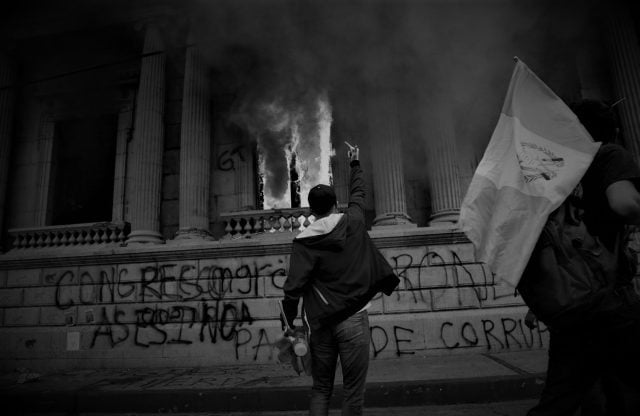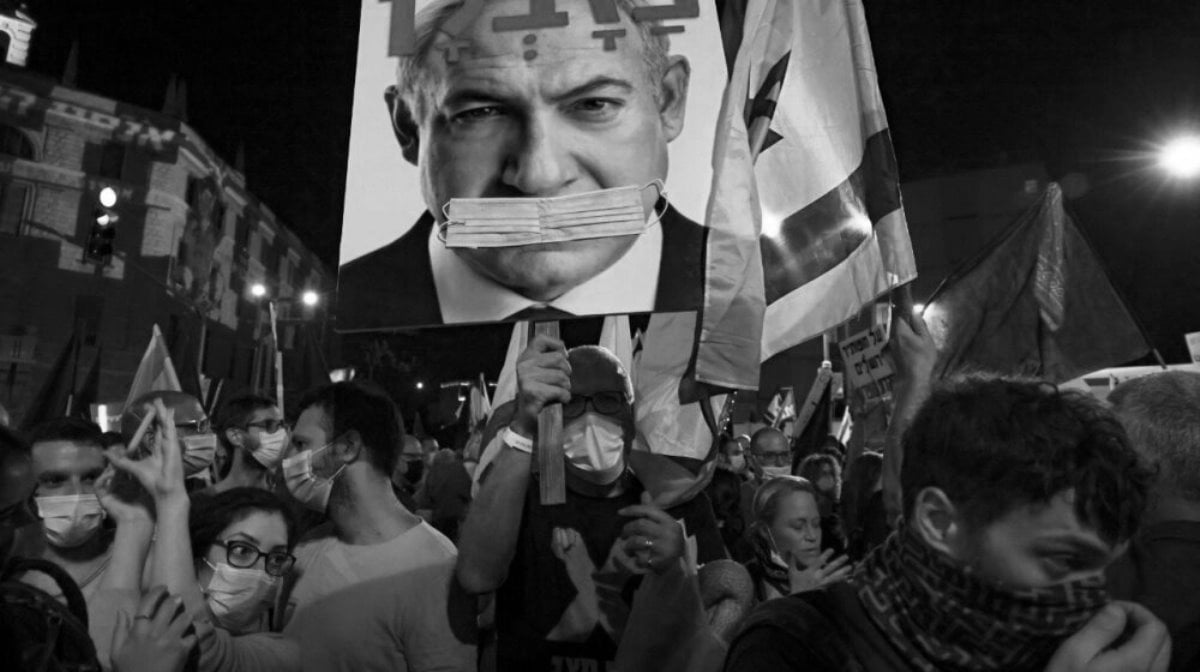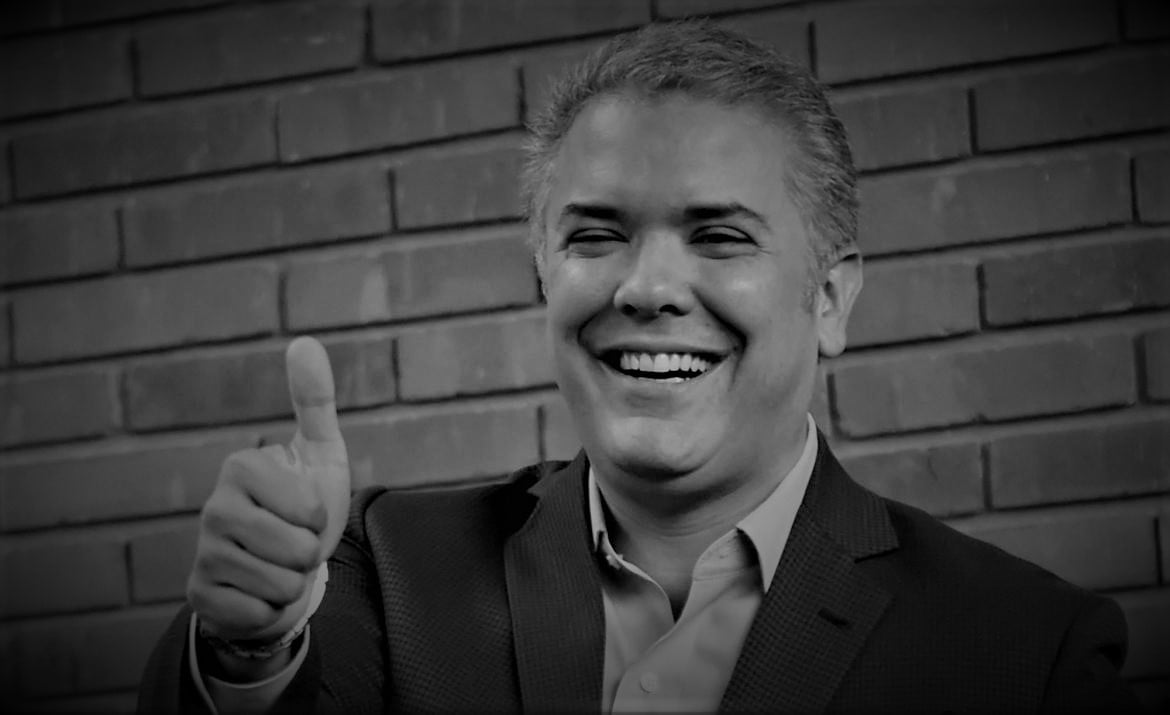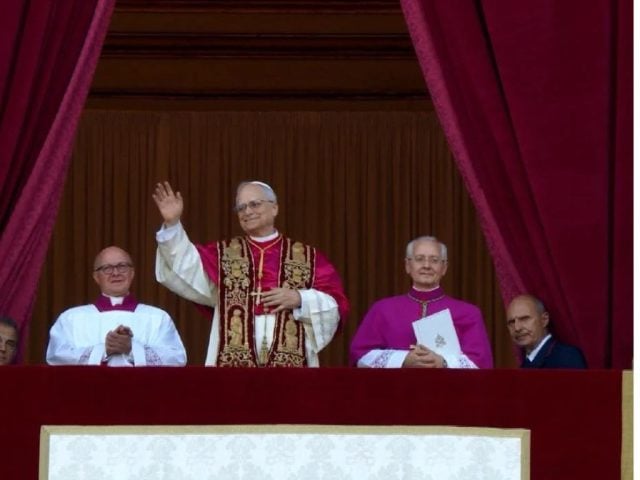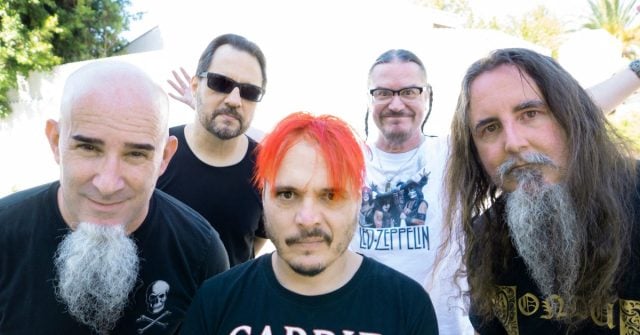This Saturday, November 21, a peaceful demonstration was held in front of the Guatemalan Congress to demand the resignation of President Alejandro Giammattei. The rally ended in a massive protest that became so enraged that a group of hooded men decided to set the parliament on fire.
But how did Guatemala come to this political and social crisis? Why do Guatemalans accuse the Giammattei government of being a corrupt Drug Cartel State (Narco State)? All this happens while the appointed president invokes the Democratic Charter of the Organization of American States (OAS).
A report in the RT media chain exposes a series of key elements that help to understand the conflict. The situation has made it evident that the Guatemalans are dissatisfied with the current regime and seek change at all costs.
The aforementioned news report explains that Guatemala has been immersed in a political and institutional crisis for months. In fact, the president has lost half his popularity in just two months. Also, the Legislative and Judicial powers find themselves in a strong confrontation, one against the other.
In this context, the approval of the national budget on Wednesday, November 18, was the fuse that started the metaphorical ‘fire’ in the Guatemalan society. And this, then had its real consequences when the Congress was put on fire.
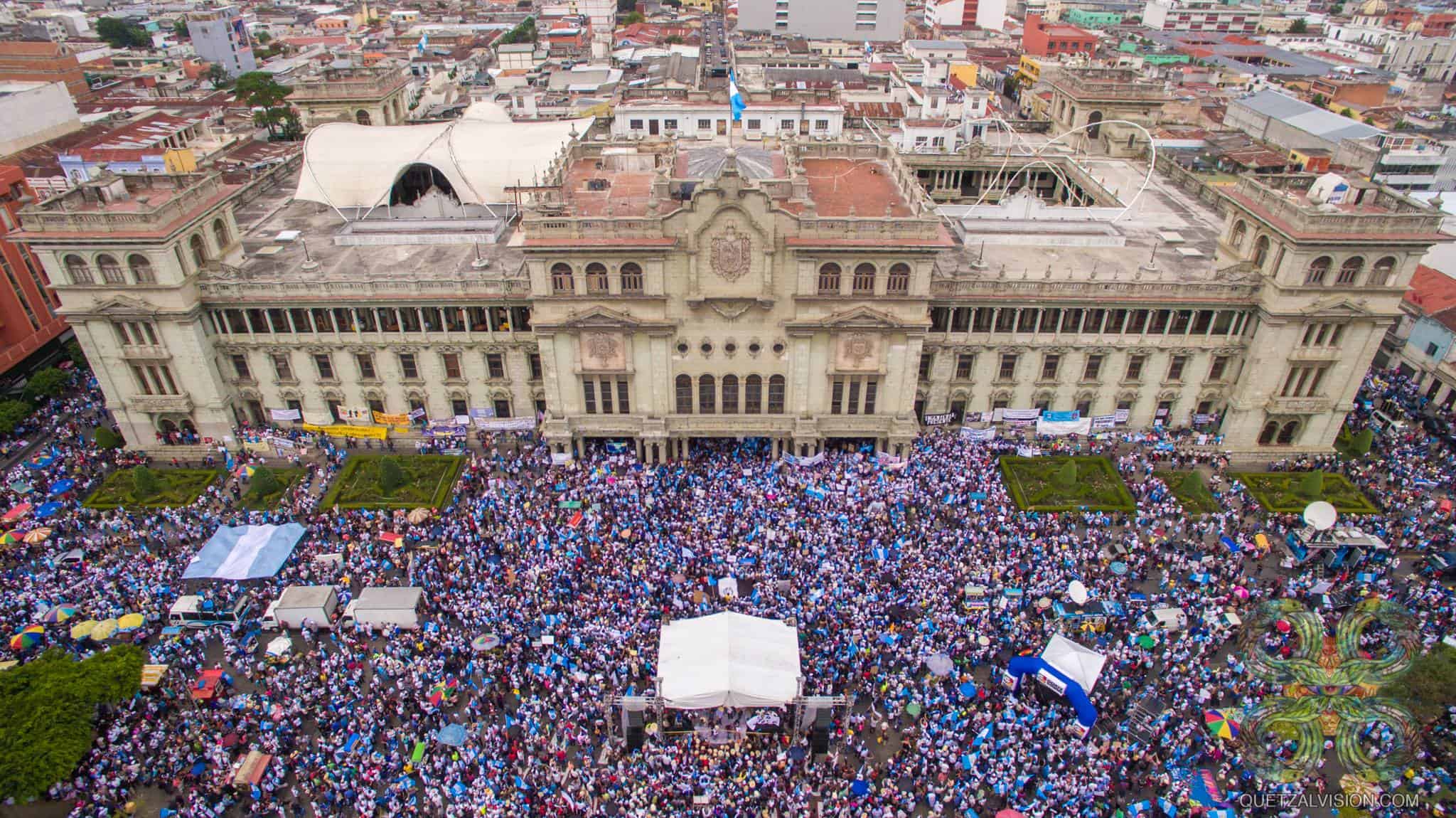
1.- Guatemala and public debt
The 2021 Budget Law that was approved is the most ‘expensive’ in the history of Guatemala. The only exception was that of this 2020, because it was exceptionally increased to fight against the coronavirus pandemic.
To meet the expenses contemplated by the project, Congress uses loans that raise the public debt to historic figures. Now, each citizen will owe 1,690 dollars, in a country whose per capita income barely exceeds 1,500 dollars, reports RT.
In addition, the budget contemplates the cut of certain items, some of enormous social burden. Thus, the budget for the office of the Human Rights Ombudsman and the Judicial Branch is reduced. Also to the University of San Carlos, to cancer patients, newborns, nursing mothers, among other vulnerable sectors.
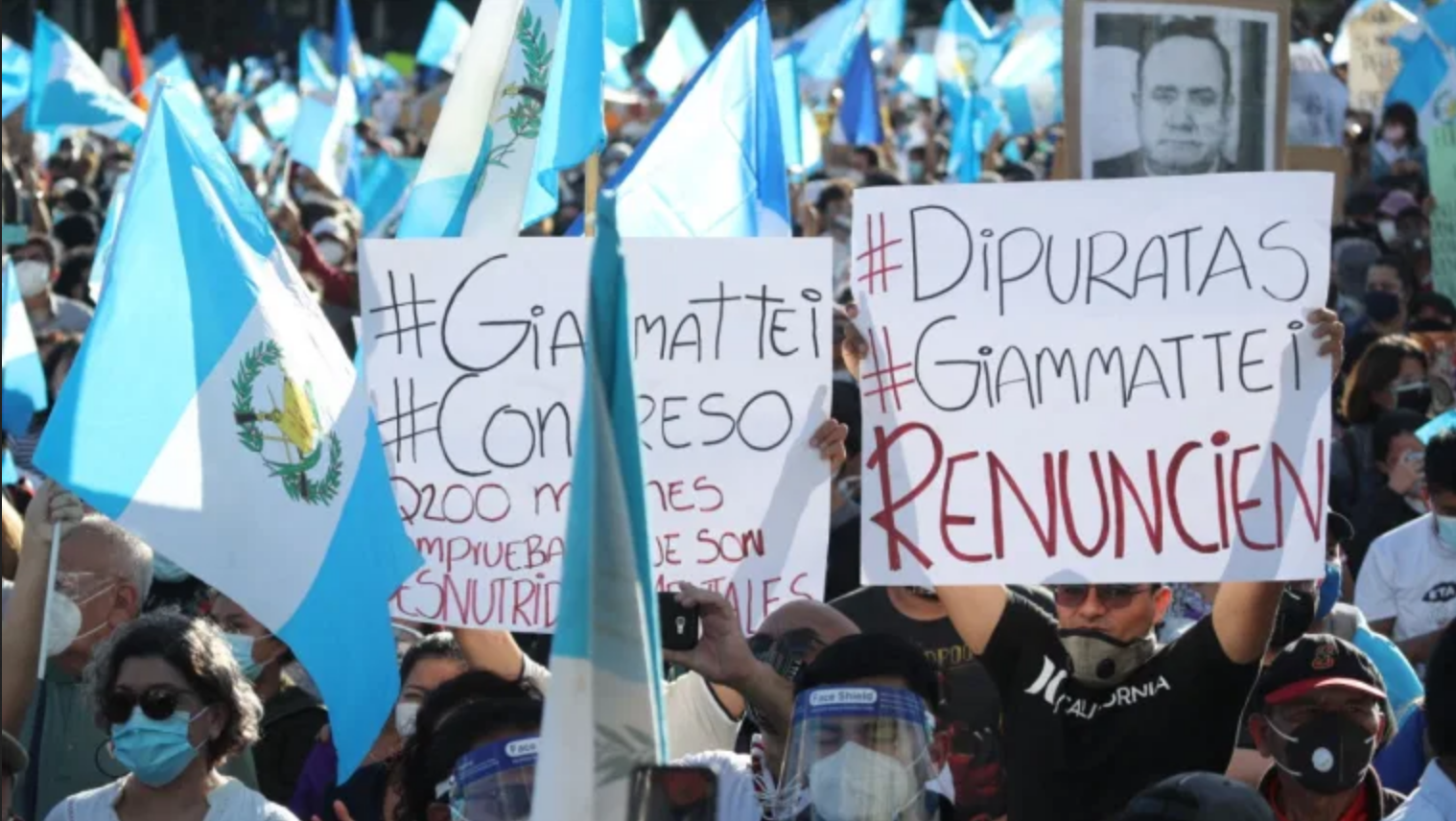
2.- Why the urgency?
Citizens are not only outraged by the content of these recently approved public accounts, but also by the way they were approved. The opposition denounces opacity and the Legislative Chamber receives criticism related to the ‘urgent procedure’ that has been followed to approve the budget.
Certainly, it is not the first time that the law has been processed as a national emergency, it already happened in 2006, 2009, 2013 and 2015. But this time, the final document was sent to the deputies just a few hours before the vote. Then, there was no time to analyze it and it presented substantial changes with respect to the text that was previously debated.
In addition, an agreement of the legislative blocks related to the ruling party – heirs of past governments plagued by corruption – is denounced, which would have left out the opposition groups.
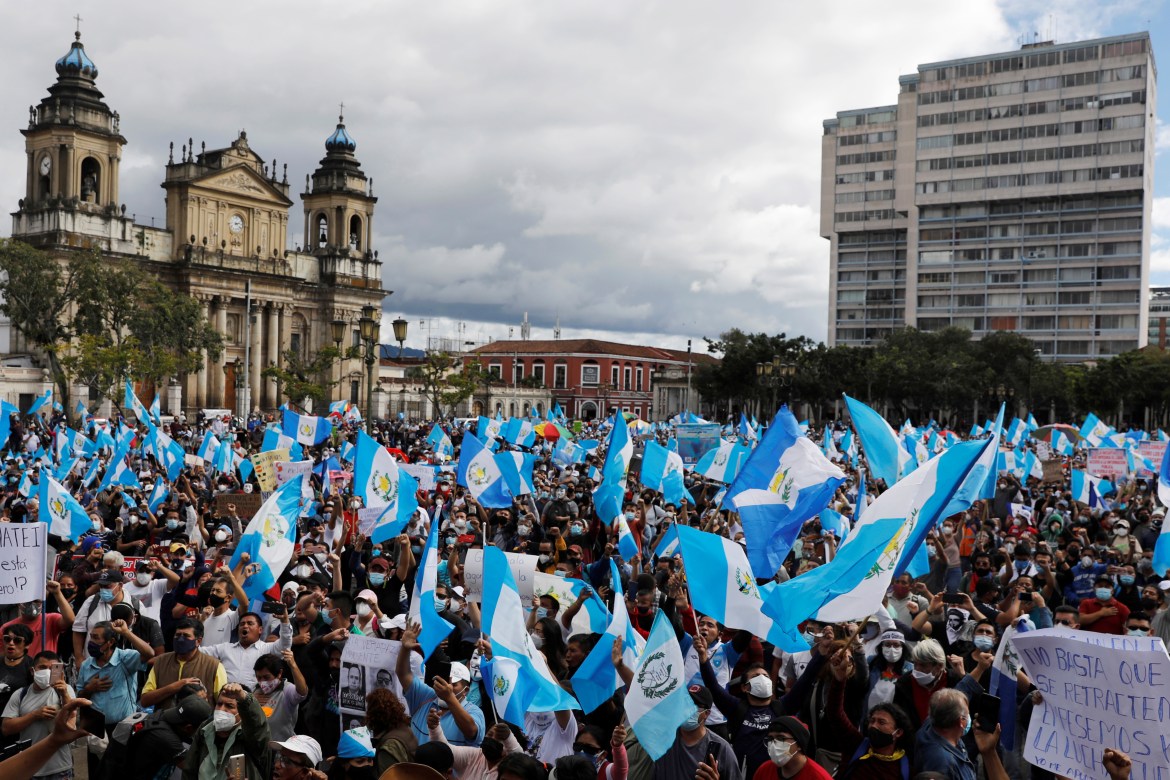
3.- What happened in the protests?
The largest protests occurred on Saturday. That day, thousands of people demonstrated peacefully in the streets of Guatemala City.
The police strongly repressed the protests with tear gas and ended up arresting dozens of protesters. It is estimated that during that day there were at least 37 arrests and 22 injured.
Several outbreaks of violence were also witnessed. Some protesters set fire to wooden planks and a small monument. Later, a hooded group addressed the Congress and managed to enter the legislative headquarters and set part of it on fire.
This week, the calls for new demonstrations and even for a general strike began. The idea – of those who summon – is to paralyze the country and remove Giammattei from the presidency.
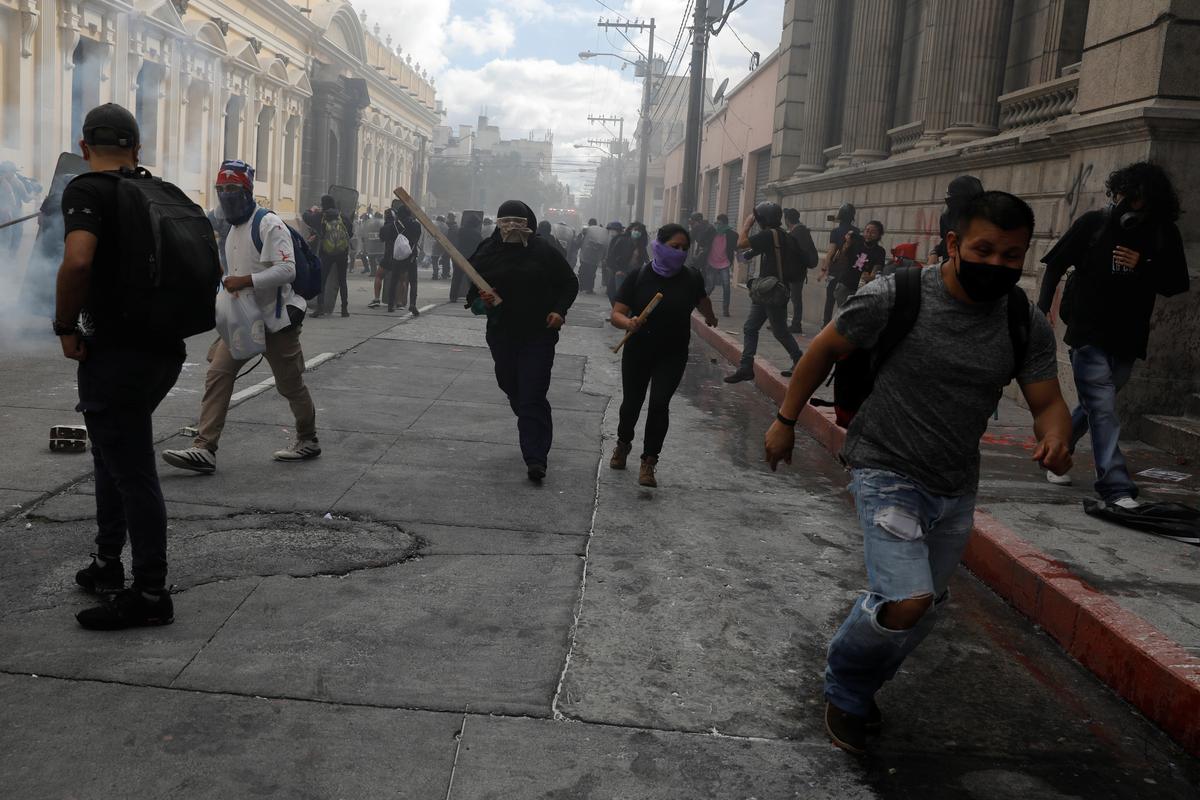
4.- What is happening in the Government of Guatemala?
The Government is not alien to the problems and even Vice President Guillermo Castillo issued some harsh statements. He publicly asked President Giammattei that both of them resign, because the situation is getting out of hand.
Giammattei is precisely the main target of the protests. Only eleven months after taking office – he was proclaimed in January 2020 – his popularity has plummeted by half.
His detractors multiplied after endorsing these controversial public accounts and the alliance in Congress that made them possible. Thus, Giammattei did not comply with the general demand to veto these budgets, a request that even came to him from his own vice president.
5.- What do the Legislative and Judicial powers say?
Citizens are also upset by the shady relationship between the Legislative and Judicial powers. This institutional crisis began in the middle of the year, when the Constitutional Court ordered Congress to elect the magistrates.
Congress disobeyed and this triggered cross complaints between deputies and magistrates. Both groups enjoy immunity and now the Supreme Court of Justice (CSJ) must decide whether to open the process to evaluate and withdraw that protection.
The CSJ did not process the cases against the parliamentarians, but it did so with four members of the Court. These magistrates, in turn, may have to decide on the controversial budgets approved by Congress.
6.- The last movement of Congress
The last political action was carried out by the head of Congress, Allan Rodríguez. During the early hours of this Monday, accompanied by 16 deputies from the ruling blocs, he reported the suspension of the 2021 Budgets.
In his speech, Rodríguez pointed out that the suspension is produced in order to maintain the country’s governance and social peace. In addition, he tried to refute some of the accusations regarding the processing of public accounts.
But then, the deputy of the Semilla bench, Lucrecia Hernández Mack, gave them a legal warning. «Neither the Board of Directors (of Congress) nor its allied blocs have the power to file away a law approved by the plenary session».
